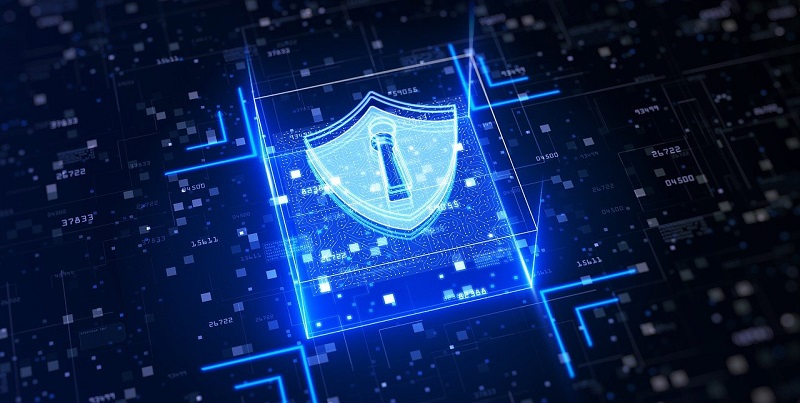As businesses increasingly move towards digitization, their IT infrastructure is becoming more critical than ever. Every business has different needs for its IT infrastructure, but one thing remains constant – the need for reliable protection. An unprotected IT infrastructure can lead to devastating consequences, such as data breaches, loss of sensitive information, and damage to the company’s reputation. Security threats can come from various sources, such as cybercriminals, computer viruses, disgruntled employees, and unintentional human errors.
Protection of Communication Channels
It is no longer enough to rely solely on Secure Sockets Layer (SSL) or Transport Layer Security (TLS) protocols to encrypt communication channels. Hackers can intercept and steal encrypted data, so it is crucial to use more advanced encryption mechanisms to secure communication channels properly. Additionally, businesses should use a Virtual Private Network (VPN) to add an extra layer of security to remote connections.
Implementation of Multilevel System Security
It is essential to have several layers of security in place to fully secure your IT system. This includes implementing antivirus programs, firewalls, intrusion detection tools, and anti-malware software. You should also use multi-factor authentication (MFA) to ensure that only authorized users can access systems and data.
Differentiation of Access to Infrastructure Resources
Following the universal rule of least privilege, businesses must ensure that users and processes only have access to resources that are necessary for their work. Organizations should limit access to sensitive information, such as financial or personal data, and implement role-based access control (RBAC) to manage access.
Monitoring and auditing of systems
System monitoring and auditing are critical for detecting unusual activities or breaches before significant damage is done. You should set up monitoring protocols and alerts for suspicious behavior, and conduct regular audits to identify any weak points in the system.
Timely software updates and server antivirus protection
Hackers are continually evolving to keep up with the latest security measures. Regular software updates and installing antivirus protection are critical for safeguarding your IT infrastructure against new and emerging threats.
Access control best practices
In addition to the areas mentioned above, businesses should implement the following best practices to ensure better access control. Limiting access to infrastructure resources based on a user’s job function or need-to-know is critical in ensuring data security. Follow the principle of the universal rule, which states that processes and users should only have access to the resources they need to complete their work.
Using Secure Protocols for Remote Administration
Remote administration presents unique security challenges. Businesses must establish a workspace that is entirely secure before providing remote administrative access. Secure protocols such as Secure Shell (SSH) or Remote Desktop Protocol (RDP) should be used for remote administration.
Utilizing firewalls to control traffic
Firewalls monitor and control incoming and outgoing network traffic. They are a crucial layer of defense in securing IT infrastructure. By applying a specific set of rules that allow certain traffic and reject everything else, the firewall permits traffic that meets those rules.
Isolating Public Services from Internal Resources
If you offer public services, consider isolating them from your internal infrastructure resources. This is typically done using a demilitarized zone (DMZ). This practice ensures that even if an attacker manages to access your public-facing service, they will not be able to reach sensitive internal resources.
Cryptography as a Means of Security.
Cryptography secures communication channels by encoding data in a way that only authorized parties can read. It is an important tool for businesses to secure sensitive communication channels such as email, notifications, and data transmissions.
Measures to protect servers.
Servers are a central component of IT infrastructure, and they are also prime targets for cyberattacks. Businesses must implement measures to ensure the physical and digital security of servers. Here are some measures to consider:
Installing and updating server protection programs.
Antivirus protection software should be installed on all servers to protect against viruses and malware; however, that is not enough to keep them secure. Regular updates of the server software should also be done to patch any vulnerabilities that can be exploited by attackers.
Regular encrypted backups of data.
Creating encrypted backups of your data is a crucial security measure. In case of a breach, you can use the backups to restore your IT infrastructure to its previous state. Ensure that the backups are kept away from your primary network to prevent them from being affected by an attack.
Ensuring Uninterrupted Power Supply to Server Rooms.
Server rooms must have an uninterruptible power supply (UPS) to ensure that they remain operational during power outages. This measure ensures that any critical IT processes continue to run without interruption, even when there’s a power outage.
Timely Physical Protection of Servers
Physical access to your servers must be restricted. Only authorized personnel should be allowed to access the server rooms. Additionally, implementing measures such as locked server racks and access controls to limit server access can prevent unauthorized access to the servers.
Application of Best Practices in Server Protection Systems.
At this point, you already know that cybersecurity threats exist and how to mitigate them. The best way to guarantee the security of your IT infrastructure is to implement the best practices in server protection systems.
Conclusion and importance of IT infrastructure protection.
In conclusion, IT infrastructure security is vital to the well-being of any organization. Failure to secure it can lead to substantial financial and reputational losses. Businesses must implement a multi-tiered security approach to safeguard against evolving security threats. Adopting the best practices outlined above is critical to guaranteeing a well-protected IT infrastructure.

